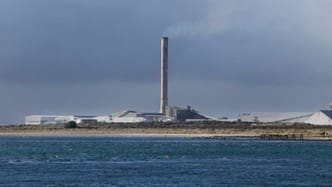SYNLAIT MILK LTD – FINANCIAL SITUATION
Synlait Milk Limited is currently navigating significant financial challenges, as the company now anticipates breaching three of its key banking covenants. This precarious situation could result in the company’s debt being called, necessitating immediate repayment.
Bright Dairy’s Potential Financial Support
Bright Dairy, a major shareholder with a 39% stake in Synlait, intends to extend a financial lifeline to the struggling company. This potential support is critical, but the involvement of other key shareholders, particularly The a2 Milk Company, will be instrumental in determining the outcome.
The a2 Milk Company’s Position
The a2 Milk Company’s investment in Synlait has seen a drastic decline—from a valuation of $577 million NZD in 2018 to less than $18 million currently. This stark decrease poses strategic considerations for a2 in the ongoing financial negotiations.
Strategic Considerations for a2 Milk Company
Given the current scenario, a2 Milk Company might contemplate blocking Bright Dairy’s proposed funding. By doing so, a2 could avoid further capital investment in Synlait, and potentially acquire a further interest in the Dunsandel plant. The Dunsandel facility holds a valuable license to export to China, making it a critical asset for a2.
Market Implications and Expert Insights
Hamiton Hindin Greene’s Jeremy Sullivan, recently published these issues and their broader impact, highlighting the strategic manoeuvres and potential outcomes for all involved stakeholders. Please contact your adviser if you wish to discuss Synlait in more detail.

TIWAI POINT’S FUTURE SECURED, BOOSTING ELECTRICITY STOCKS
In a transformative development for New Zealand’s electricity market, New Zealand Aluminium Smelters (NZAS), owned by Rio Tinto, has secured 20-year electricity agreements with major energy providers Meridian Energy, Contact Energy Ltd, and Mercury. This landmark deal guarantees the future of the Tiwai Point smelter in Southland, stabilizing electricity pricing for an aggregate of 572 megawatts (MW). The smelter is renowned for producing high-purity aluminium for both global export and domestic supply.
Significance of the Agreement
These agreements, which conclude over 18 months of intricate negotiations, represent a significant turnaround for NZAS. In 2020, Rio Tinto had announced plans to cease operations at Tiwai Point, citing prohibitive energy costs and an unfavorable market outlook. However, the new contracts, set to commence in July and extend until at least 2044, have reversed this decision, securing the smelter’s operational future.
Impact on Electricity Stocks
The confirmation of these long-term electricity agreements has positively impacted the stock market, particularly for the involved energy companies. The confidence in sustained demand from Tiwai Point for the next two decades has driven up share prices:
- Meridian Energy: Share price increased by 4.66%
- Mercury: Share price rose by 5.32%
- Contact Energy Ltd: Share price climbed by 5.11%
These gains reflect the market’s optimistic outlook on the stability and profitability of these energy providers due to the secured demand from Tiwai Point.
Broader Market Implications
The successful negotiation and finalization of these agreements underscore the resilience and strategic importance of New Zealand’s energy sector. By securing a long-term commitment from a major industrial consumer like NZAS, the electricity market is poised for sustained growth and stability. This development not only benefits the energy companies involved, but also strengthens the overall market sentiment.
Strategic Insights for Investors
For investors, this development signals a robust opportunity within New Zealand’s electricity sector. The long-term agreements with NZAS ensures a steady revenue stream for Meridian Energy Ltd, Contact Energy Ltd, and Mercury NZ Ltd, enhancing their financial stability and growth prospects. This is an opportune moment to consider these stocks for inclusion in a diversified investment portfolio.
